Everything I Needed to Know about Poetry I Learned from #KPOP
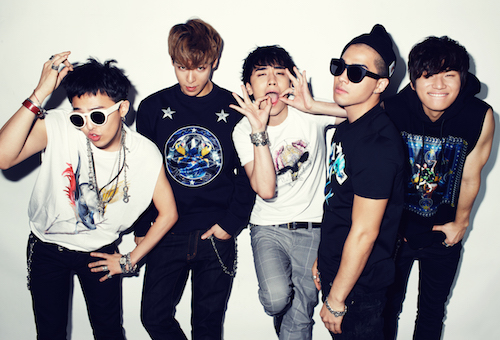
Seoul, South Korea
This fall, I joined the editorial/programming board of Perdu, an Amsterdam-based organization focused on poetry and performance (mixed with politics and philosophy). During days, Perdu is a quirky poetry-only bookstore, straight down the canal from the Red Light District and Chinatown; during nights, Perdu opens its back room—a former hospital kitchen—and becomes a space for performances, workshops, and a bar. This season, Perdu is putting together a series of events on the ‘90s. It’s making me feel pretty old. Some of the topics proposed in our brainstorming have been the ‘90s and multiculturalism; the ‘90s and the Internet bubble; the ‘90s and the “End of History.” Are the ‘90s already history?
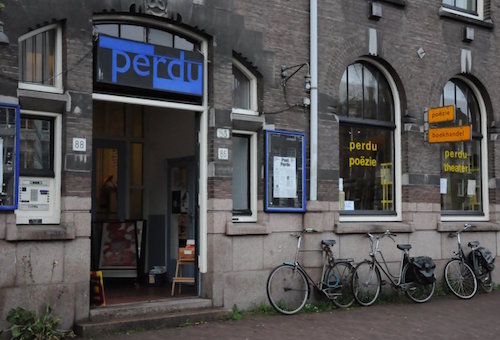
When I think back on the ‘90s, sure, eventually, one day, somehow, by accident, I might get to all the topics above. But first, I think about angst and bad plaid and taking the SATs and not getting asked to prom and K-pop. After all, the ‘90s correspond directly to my teen years. A lot went down in the ‘90s, but it’s also the decade for which I had a plausible excuse for being totally, radically self-centered.
In the ‘90s, we moved from San Jose, CA to Saratoga, CA, and then my father moved back to Seoul, South Korea, for work. My mother, younger brother and I saw him when he visited on business trips, and when we visited Korea on school breaks. He lived in a small flat on the 26th floor of a Seoul high-rise, near the Han River.
If I looked out the living room window, I could see: the water and cars lined up on the freeways // the wedged-in building of my father’s computer company // a large, neon Allianz sign, which I stared at so often that, now, when I see the same sign in Rotterdam, I get that wave of anxiety and nostalgia I associate with Seoul // the headquarters of several broadcasting companies, most directly that of KBS.

If I looked out the same window today, I would still see the water and the cars, but the rest might be obscured, or certainly dwarfed, by two Trump World Towers built between 1999-2002. But I can’t really be sure—my mother and brother moved permanently to Seoul after I went to college, and they and my father moved to a bigger flat in a different part of the city before the Trumps went up.
But my life in the Nineties really began in 1992. We moved from San Jose to Saratoga. I had, in the previous year, gotten my first period and bought my first bra. I started taking Tae Kwon Do lessons. These details are going somewhere. My mother discovered a Korean video store, located near my Tae Kwon Do studio and the Korean supermarkets in Santa Clara. Every week, after shopping for kimchi and dried fish and Choco Pies and cuts of meat that counter-intuitively went through the bone—ensuring you wouldn’t find them at any Safeway or Alberston’s—my mother picked up a white plastic bag with five VHS tapes.
Do Korean video stores still exist? Do they still use VHS tapes? Each tape usually included two shows: often a comedy program or talk show, combined with a Top of the Pops-style music program. Or two episodes of a popular drama series. In 1992, the hit series were Sarangi Mwogilrae (“What is Love?”) and Jiltu (“Jealousy”). Jiltu starred a young and impossibly charming Choi Jin-Shil, who became the biggest Korean actress of the 1990s. She had a tomboyish bob that went to her chin, a bright and earnest smile, and large eyes that were unparalleled in their sparkle. Do these sound like the clichés of a K-pop song? She invented all the clichés. In 2008, Choi committed suicide, the victim of widespread Internet slander.
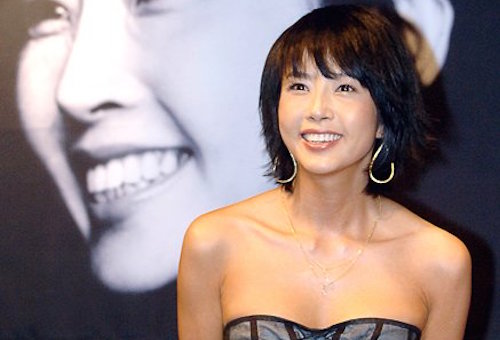
But in 1992, we didn’t have Internet at home, although we would soon, and even the news came over by VHS. South Korea only really had three television stations: KBS1, KBS2, MBC. If you were in Seoul, or nearby, you also had SBS. If you wanted to watch shows in English, like Days of Our Lives or Jeopardy, you had AFKN, the Armed Forces Network. During the early afternoons, the Korean television stations usually turned off, so sometimes Oprah on AFKN, or live-broadcast badminton competitions, were all you could watch.
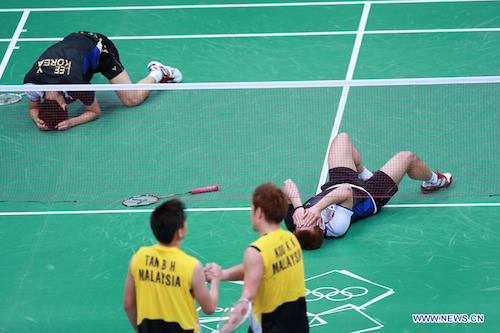
I’m telling you this because it feels important to recall what it was like living in a place where everyone watched the same thing, together at the same time—when something happened on national television, it was a national event. When something happened on national television, all you had to do was make a one-word allusion to it during lunch, and all of your co-workers would know exactly what you were talking about and laugh; it was a nationalized inside joke. When something happened on national television, it would take a week to make it to a Santa Clara video store, and the people who watched it would feel intensely, and not crazily, like they were keeping up with what was going on at “home.”
The ‘90s are already history.
I’m really not so old, but I still can’t get over it.
I’ve lived in the Netherlands for over a year now, and Dutch TV is filled with American TV: Girls, Orange is the New Black, Grey’s Anatomy, CSI, NCIS, Law & Order: SVU, Teen Mom, you name it. Everyday I do my round of news websites and social mediums and, honestly, I feel like I have no idea what’s really going on over there. People here ask me, “Is Donald Trump really a serious contender for the presidency?” People ask me, “But haven’t you read that essay by Trisha Low on conceptual writing?” Wait, what? Who is Trisha Low? (Okay, now I know.) And I can’t figure out if America has really gone crazy, or if this whole Trump thing is part of some long con. Is it possible that I’m narrowly escaping Trump going up, again?
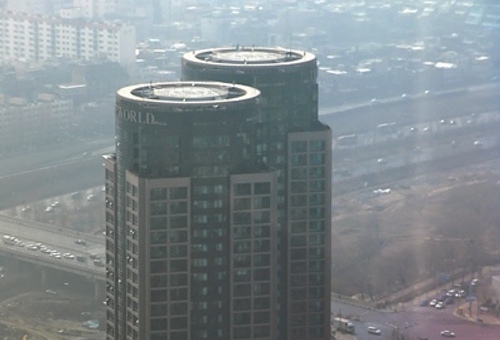
I’m really not so old, but I still can’t get over it.
In the spring of 1992—Wikipedia now tells me that it was April 11—a three-member group called Seo Taiji and Boys performed on an entertainment news/talk show, in front of a panel of music critics. The segment was supposed to introduce new music acts and ask experts to evaluate their talent and potential for success. The experts decided, basically, that Seo Taiji and Boys sucked.
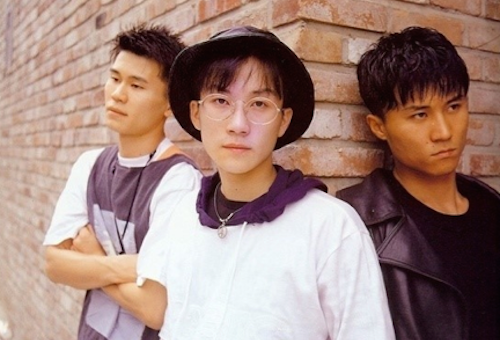
Before Seo Taiji, the dominant styles of music in Korea were trot (short for “foxtrot”), ballads and rock, which was mostly underground or imported. What is trot? I’m not a music expert, so it’s hard to explain in technical detail, but trot, which originates from the Japanese colonial period, is a strange hybrid of early 20th-century European, Japanese and Korean music that evolved into becoming Korea’s predominant folk music. Imagine a group of Korean grandmothers on a vacation tour bus, wearing pastel-colored shorts and long visors. What is the music they would blast from the radio, or sing and dance along with via the bus’ karaoke machine? That is trot. Imagine a Korean Jacques Brel or George Brassens wearing a sequined blazer and drunk on makgeolli. That is also trot. By the late 20th-century, trot came to signify the “authentically” Korean.
Now compare this to Seo Taiji and Boys, who have choreographed dance moves and liberally sample from American pop songs and dare-to-wear whatever assemblage that is that they’ve got happening. Compare this to Seo Taiji and Boys, with their MIDI-controlled tunes and affectless singing, who seem far from caring about anything authentic. Compare this to Seo Taiji and Boys who are rapping in Korean. Even the ostensible love lyrics of their debut song, “Nan arayo” (“I know”) are constantly undercut by awkward elbow jabbing and . . . is that the Charleston? And thank god, since the lyrics are vacuously generic, a cobbling of clichés. “Please wait for me, listen to my words,” they sing. “We don't really mean what we’re singing,” they actually say, “it’s all part of the show.”
“Nan arayo,” despite being panned by the panel of experts, became an immense hit, an unparalleled hit. Headlines on Korean newspapers declared that the “Seo Taiji Craze” had swept in, as if it were a hurricane. Everyone wore t-shirts with neon tank tops layered over them. For months, those five VHS tapes we got each week from the Santa Clara video store were filled to the brim with Seo Taiji. My brother, four years old at the time, spent the entire summer dancing in front of the television, trying to follow the moves.
I still own, in my little yellow box of memorabilia, the cassette tape of Seo Taiji’s first album. I have no idea who gave it to me, or where I got it. I think I stole it from my uncle. But I do know that for almost six years, until I went to college, I—the intensely serious and dedicated fan girl that I was—listened to one song on that tape every night, Ijeneun (“Now”). Why? I don’t know. A teenage girl needs to carve out space for self-reflection. A teenage girl can’t face her own desires unless she has the backdrop or foil of someone else’s. A teenage girl finds ways to process the pervasively public as the radically private. Etcetera. It just became one of those necessary rituals.
But all this is already history. April 11, 1992 is the birth date of K-pop. Ask a Korean! I am sure someone will say, “Oh, but there was this or that before,” but they are trying to be smart and little bit snarky, which Korean women, especially, excel at. I would know; I consider it my birthright. But still, everyone of the Great Korean Diaspora who lived through the ‘90s knows that the debut of Seo Taiji and Boys on an MBC talk show was a historical moment; knows that Korean pop music went through an immense transformation after it. Girls Generation, EXO, 2NE1, BIGBANG, 2PM, 2AM, Super Junior, BTOB, B.A.P., VIXX, TVXQ, all of these immaculately produced idol groups whose names I don’t ever know how to say aloud properly and who seem rapidly, before one’s very eyes, to proliferate into more and more members, can be traced back to Seo Taiji and Boys.
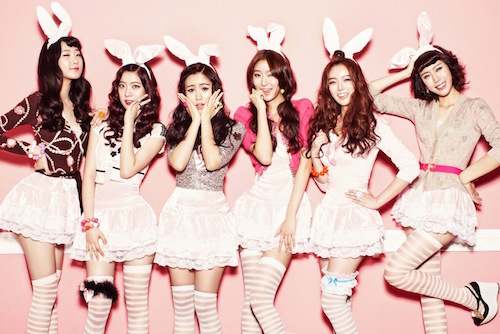
With Seo Taiji came the revelation that you could import a genre or style (or maybe that it was so inevitable, at this point, that you just had to let it happen), but if you made the song yourself, you could tailor it to a contemporary Korean audience. This achieves a kind of authenticity that isn’t derived from tradition or the pretense of “real feelings,” but instead functions as a cross-section of contemporary, lived experience. Don’t get me wrong: our lived experience involves real feelings and the traces of traditions; but the point isn’t necessarily to delineate and recount those, but rather to see what you can build, or express, from the marked materials at hand.
Sometimes I wonder if this is also why K-pop resonates so strongly with Korean emigrants, Korean-Americans, half Koreans, any Korean who can identify with the ambivalent and momentary collage form at the music’s core. Or, anyone. I’m trying to make arguments, but something in me always resists that, so instead I’m making Language. What I mean: I have a hard time with “authenticity” when it depends too much on the a priori; I want to believe that authenticity is a quality we rise to, that it is a social enactment. I don’t want it to be a concept we wield defensively, nor one we can dismiss opportunistically. I’m homesick, so I want to believe authenticity exists; but I’m homesick because I’ve never felt at home. I can’t accept that authenticity is something I just won’t have.
During my junior year of high school, my journalism summer camp friend, Tommy Craggs came to visit me in Saratoga. Tommy is half-Korean, and he brought his friend, the Korean-American ajussi-in-the-making Matt Cho. Seeing summer camp friends is always awkward, because you realize you really have nothing in common. In desperation the three of us went to a noraebang (karaoke room) near my Tae Kwon Do studio and video store, and we sang and danced to Seo Taiji songs until we were too humiliated, and too bonded by our humiliation, to be awkward with each other.
But really, I don’t think Seo Taiji’s music, in the method it followed, is so far away from trot. As I wrote earlier, “Nan arayo” is a rather vacuous and derivative song, but it made the radical shift in Korean popular music clear. Here was a strange hybrid of American and Korean music that eventually established itself as Korea’s predominant pop (folk?) music. And now K-pop—post-Seo Taiji—is regarded as an actual Korean cultural product, one that can and should be exported.
This seems to be working, especially in other Asian countries, but I always wonder what Korean (and American) music producers, who invest millions of dollars in trying to promote Korean recording artists in America as well, expect that Americans will see and desire in these “products.” I think I understand why Psy became so global: he too is a total ajussi, with a song and music video that parodies a middle-class view of leisure culture in Seoul. That’s really weird, and specific, and even if you don’t get the critique involved, it’s still striking. You either see that Gangnam is a bizarre place, or that the way these characters are mimicking and mocking Gangnam is bizarre. So it works—to Koreans and to Americans, Belgians, Indians, Nigerians, Brazilians alike. But Psy was not marketed intentionally to an international audience; his video was on YouTube, and it went viral. He was not tailored according to what “the American audience” wants.
But when I see how K-pop stars such as BoA and the Wonder Girls are marketed, deliberately, in America, I get nervous. Can K-pop be tailored to an American audience in a way that doesn’t just turn it back into a codified version of American music; can it somehow still maintain the trace of resistance implicit in importing a genre or style while still maintaining your own language—in forcing it to engage a locally-lived experience, making it into your own song? I like the idea that K-pop, like trot, at its origin was a way for the local culture to navigate, to make use of, to appropriate a dominating external culture; a way for Korea to come to terms with America's invasiveness and pervasiveness, and to try to set the terms. I have no interest in a K-pop that just spits back a glitter-covered and Auto-Tuned echo of the Empire, just to please it.
But I don’t think music producers really care about any of this. And, really, I care about poetry.
The songs that followed “Nan arayo,” almost all written by Seo Taiji himself, employ more specific and unconventional lyrics; their sounds lean toward the Chemical Brothers and Cypress Hill, rather than MC Hammer and New Kids on the Block; and the “Korean element” becomes more explicit. On the Seo Taiji and Boys’ second album, the song “Hayeoga” (a Sino-Korean term hard to translate to English) features both an electric bass solo and a nallari, a traditional Korean woodwind instrument, playing over the chorus . . .
. . . and a sample of Bart Simpson saying, “Hey, man, it’s me, Bart Simpson.”
Seo Taiji and Boys disbanded in 1996, just four years after their debut. Things happen fast in Seoul, and in those four years the group faced censorship threats, plagiarism claims and accusations of being part of a Satanic cult. They also produced a string of Number 1 hits on topics such as, oh, you know, the oppressive South Korean education system and the hope for a North-South reunification. Can you imagine Girls Generation, in their rainbow skinny jeans, doing a choreographed dance to this, and it not being excruciating, or for an Olympics opening ceremony? It’s not an insane comparison; Seo Taiji and Boys were popular like that.
There is one song I only heard years after its release, after searching for it on Google: “Shidaeyugam” (“Regret of the Times”). It was banned initially by the South Korean Art and Culture Ethics Committee and appeared on the Seo Taiji and Boys’ fourth album as just an instrumental. Fans protested, the ban was overturned, and the South Korean government’s longstanding censorship system started to unravel. Don’t forget that the first non-military president in decades was elected in 1992, but only after he allied with the governing party. And don’t forget that you don't mess with K-pop fans!
The song begins: “Why? Haven’t you been waiting this, for the sound of people giving up? I think something’s going to happen to drive this world crazy.” There’s nothing obscene or explicitly threatening in the lyrics of “Shidaeyugam,” but it is still an angry song, the song of a dissident. It was a song that could mobilize, under a power structure that was defensive. And I think this song is their best, not because of the song itself, but because of what I think I see in its audience—a momentariness, an ambivalence, and a feeling of belonging allowed nowhere else.
I’m glad I came to “Shidaeyugam” late. It’s a song I wouldn’t have understood in the ‘90s, when I was still carving out my private, radically self-centered world while listening to “Ijeneun” on my Sony Walkman—but I listen to it now, while keeping up with what’s going on at “home.” And I do feel it intensely.
***
You can also watch current popular boy band SHINee’s cover of the song, from 2013. But I wouldn’t really recommend it . . . unless you, dear Netizen, are “ㅉㅉ”-ing about how I turned this post about K-pop into a bizarre (personal) history lesson. Then this is my way of making it up to you. <3
- Internet
- Alain de Botton
- Seoul
- Samantha Zighelboim
- SHINee
- home
- Kpop
- Seo Taiji
- Psy
- Girls Generation
- 2NE1
- Wonder Girls
- Perdu
- Amsterdam
- Rotterdam
- Donald Trump
- Tae Kwon Do
- VHS tapes
- Choi Jin-Sil
- badminton
- End of History
- trot
- makgeolli
- Seo Taiji and Boys
- Big Bang
- Tommy Craggs
- choco pies
- Sony Walkman
- Eclipse Journal
- Associated Press
- Maya Krishna Rao
- Molina Speaks
- Joseph Braun
- Brice Maiurro
- The Denver Post
- Shida Boukhizou
- Dean Bowen
- Elten Kiene
- Alfred Schaffer
- Samuel Vriezen
- Brandwerk
- Woorden Worden Zinnen
- Miguel Santos
- Gino van Weenen
- Khalid Amakran
- Andrea van Herk
- Wesley Loos
- The Nashville Scene
Mia You was born in Seoul, South Korea, grew up in Northern California, and now lives in Utrecht, The Netherlands. Her first full-length collection is I, Too, Dislike It (1913 Press, 2016), which Rachel Levitsky calls, “a companion, an aria to bodily discomfort and impossibility.” Lisa Robertson writes in The Brooklyn Rail,...
